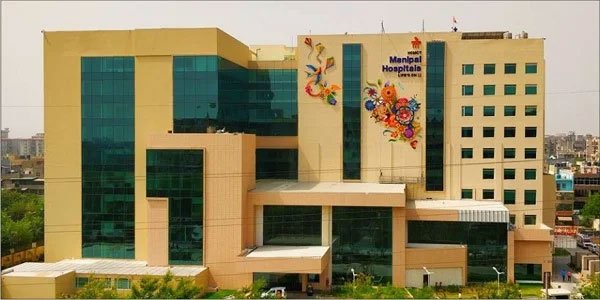What is Kidney Transplant?
A kidney transplant is a life-saving procedure for individuals suffering from end-stage renal disease (ESRD) or kidney failure. When the kidneys lose their ability to filter waste and excess fluid from the blood, a transplant becomes the best treatment option. Kidney transplantation involves replacing a failed kidney with a healthy kidney from a donor, either living or deceased. This procedure allows the patient to live a healthier and more active life without relying on dialysis.
India has emerged as a global leader in kidney transplant surgeries, offering advanced medical technology, experienced nephrologists and transplant surgeons, and cost-effective treatment options. Indian hospitals are renowned for their high success rates in kidney transplants, and the country’s healthcare infrastructure is equipped with state-of-the-art technology to perform even the most complex transplant surgeries.
Why Choose Kidney Transplant in India?
- Expert Surgeons and Nephrologists:Indian hospitals have some of the most highly skilled nephrologists and transplant surgeons in the world. Many of them have received training and accreditation from top international medical institutions and are experienced in performing thousands of successful kidney transplants.
- Affordable Treatment:The cost of kidney transplant surgery in India is significantly lower than in Western countries, often by 60-70%. Despite the affordability, the quality of care is on par with international standards, making India an attractive destination for international patients.
- Advanced Medical Technology:Indian hospitals are equipped with the latest medical technology, such as robotic surgery, laparoscopic procedures, 3D imaging, and immunosuppressive therapy to ensure successful transplant outcomes and quick recovery times.
- High Success Rates: The success rate of kidney transplants in India is comparable to, or better than, leading medical centers around the world. The success rates for kidney transplants range from 85% to 95%, depending on the type of transplant (living or deceased donor).
- Comprehensive Pre- and Post-Transplant Care:Indian hospitals offer comprehensive pre-transplant evaluations and post-operative care, including regular check-ups, medication management, and rehabilitation. This ensures that patients receive continuous support before, during, and after the transplant.
- Living and Deceased Donor Transplants:India offers both living donor and deceased donor kidney transplants. Many hospitals specialize in living donor kidney transplants, where a healthy person donates a kidney, typically a relative of the patient. Additionally, the deceased donor program is expanding, offering more opportunities for successful transplants.
- Medical Tourism Services:India is a leading destination for medical tourism, especially for organ transplants. Hospitals provide personalized services for international patients, including visa assistance, airport pickups, accommodation arrangements, and language interpretation services, ensuring a seamless experience throughout the treatment journey.
Types of Kidney Transplant Procedures in India
- Living Donor Kidney Transplant
- Cost:INR 8,00,000 to INR 12,00,000 depending on the hospital, surgeon, and complexity of the surgery.
- Deceased Donor Kidney Transplant
- Cost:INR 6,00,000 to INR 10,00,000 depending on the hospital and location.
- Preemptive Kidney Transplant
- Cost:Similar to living donor transplants, INR 8,00,000 to INR 12,00,000.
- Paired Kidney Exchange
- Cost:INR 8,00,000 to INR 12,00,000 per transplant.
A living donor transplant involves transplanting a kidney from a healthy person, usually a family member, relative, or friend. Living donor transplants have higher success rates due to better tissue matching and the health of the donor kidney. The surgery is often planned, allowing both the recipient and donor to prepare in advance.
In a deceased donor kidney transplant, the kidney is taken from a person who has died and consented to donate their organs. This type of transplant is less predictable in terms of timing, as patients must wait for a suitable donor. However, it offers an option for patients without access to a living donor.
A preemptive kidney transplant is performed before a patient requires dialysis. This option is ideal for patients with deteriorating kidney function who wish to avoid dialysis. Preemptive transplants tend to have better long-term outcomes and quality of life post-surgery.
A paired kidney exchange (or kidney swap) is an option when a living donor is willing to donate but is not a match for the intended recipient. In this case, the donor and recipient are paired with another incompatible donor-recipient pair, allowing both patients to receive compatible kidneys through an exchange.
Process of Kidney Transplant in India
- Evaluation and Testing
- Finding a Donor
- Surgery
- Post-Operative Care
- Recovery and Rehabilitation
Before a kidney transplant can take place, the patient undergoes a series of tests to evaluate their overall health and suitability for surgery. This includes blood tests, imaging studies, heart evaluations, and a psychological assessment to ensure the patient is physically and mentally ready for a transplant.
A kidney donor can be either a living donor or a deceased donor. In the case of a living donor, tissue matching tests are performed to ensure compatibility between the donor and recipient. For deceased donor transplants, the patient is placed on a waiting list until a matching kidney becomes available.
The kidney transplant surgery typically takes 3 to 5 hours. The new kidney is placed into the patient’s lower abdomen and connected to the blood vessels and bladder. The old kidneys are generally left in place unless they are causing complications like infections or high blood pressure.
After the surgery, the patient will be closely monitored in the hospital for signs of organ rejection or complications. Immunosuppressive drugs are prescribed to prevent the body from rejecting the new kidney. Most patients can leave the hospital within 1 to 2 weeks, but regular follow-ups are required to monitor kidney function and adjust medications.
Post-transplant recovery includes physical rehabilitation and lifestyle adjustments to ensure the new kidney functions properly. Regular check-ups and blood tests will be necessary to ensure that the kidney is healthy and the body is accepting it.





